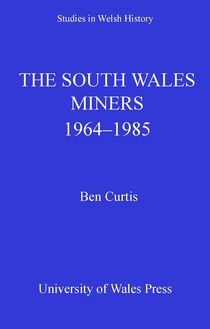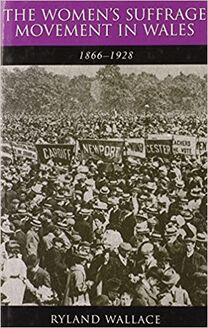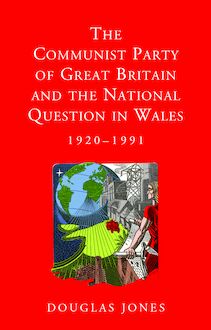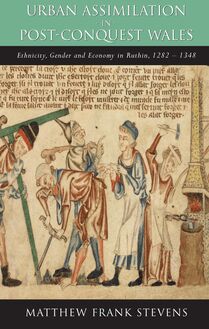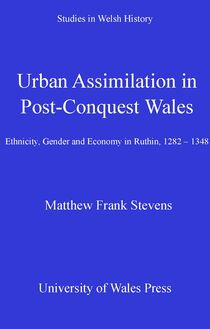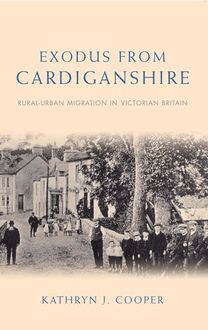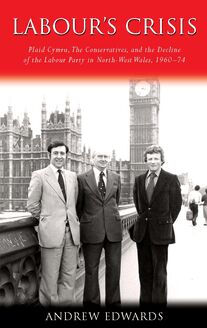-
 Univers
Univers
-
 Ebooks
Ebooks
-
 Livres audio
Livres audio
-
 Presse
Presse
-
 Podcasts
Podcasts
-
 BD
BD
-
 Documents
Documents
-
- Cours
- Révisions
- Ressources pédagogiques
- Sciences de l’éducation
- Manuels scolaires
- Langues
- Travaux de classe
- Annales de BEP
- Etudes supérieures
- Maternelle et primaire
- Fiches de lecture
- Orientation scolaire
- Méthodologie
- Corrigés de devoir
- Annales d’examens et concours
- Annales du bac
- Annales du brevet
- Rapports de stage
La lecture à portée de main
256 pages
English
Découvre YouScribe en t'inscrivant gratuitement
Je m'inscrisDécouvre YouScribe en t'inscrivant gratuitement
Je m'inscris
Obtenez un accès à la bibliothèque pour le consulter en ligne
En savoir plus
En savoir plus
256 pages
English
Obtenez un accès à la bibliothèque pour le consulter en ligne
En savoir plus
En savoir plus

Description
This is the first full-length study of Swansea’s urban development from the late eighteenth to the late nineteenth century. It tells the little known story of how Swansea gained an unrivalled position of influence as an urban centre, which led it briefly to claim to be the ‘metropolis of Wales’, and how it then lost this status in the face of rapid urban development elsewhere in Wales. As such it provides an important new perspective on Welsh urban history in which the role of Cardiff, Merthyr Tydfil and even Bristol are better known as towns of influence in Welsh urban life. It also offers an analysis of how Swansea’s experience of urbanisation fits into the wider picture of British urban history.
I Introduction Ii ‘Prejudicial To Our Ancient Rights And Privileges’: Urban Governance, C.1780-1800 Iii ‘Many Advantages Not To Be Found In Any Other Part Of Wales’: Improvement And Identity, C.1800-1820 Iv ‘A Degree Of Commercial And Manufacturing Importance’: Industrialization And Regional Status V ‘The Content And Comfort Of The Workmen’: The Swansea Populace And Social Relations Vi’Cutting Each Other’s Throats By Our Unhappy Divisions’: Local Government In The Post-Reform Era Vii’There Is A Spirit Of Intelligence Abroad’: Urban Elites And Urban Culture Viii Conclusion
I Introduction Ii ‘Prejudicial To Our Ancient Rights And Privileges’: Urban Governance, C.1780-1800 Iii ‘Many Advantages Not To Be Found In Any Other Part Of Wales’: Improvement And Identity, C.1800-1820 Iv ‘A Degree Of Commercial And Manufacturing Importance’: Industrialization And Regional Status V ‘The Content And Comfort Of The Workmen’: The Swansea Populace And Social Relations Vi’Cutting Each Other’s Throats By Our Unhappy Divisions’: Local Government In The Post-Reform Era Vii’There Is A Spirit Of Intelligence Abroad’: Urban Elites And Urban Culture Viii Conclusion
Sujets
Informations
| Publié par | University of Wales Press |
| Date de parution | 15 septembre 2019 |
| Nombre de lectures | 0 |
| EAN13 | 9781786835567 |
| Langue | English |
| Poids de l'ouvrage | 12 Mo |
Informations légales : prix de location à la page 0,0824€. Cette information est donnée uniquement à titre indicatif conformément à la législation en vigueur.
Extrait
y
‘ IN T E L L I G E N T TO W N’ A N U R B A N H I S T O R Y O F S W A N S E A , 1 7 8 0 – 1 8 5 5
L O U I S E M I S K E L L
STUDIES IN WELSH HISTORY
Editors RALPH A. GRIFFITHS CHRIS WILLIAMS ERYN M. WHITE
24
‘INTELLIGENT TOWN’
AN URBAN HISTORY OF SWANSEA, 1780–1855
Thispage is intentionallyblank
‘INTELLIGENT TOWN’
AN URBAN HISTORY OF SWANSEA, 1780–1855
by LOUISE MISKELL
Published on behalf of the History and Law Committee of the Board of Celtic Studies
CARDIFF UNIVERSITYOFWALESPRESS
© Louise Miskell,2006
British Library CataloguinginPublication Data A catalogue record for this book is available from the British Library.
ISBN-978-0-70832-510-0 eISBN-978-1-78683-556-7
All rights r eserved.No part ofthis book may be r eproduced,stored in aretrieval system,or transmitted,in any form or by any means ,electronic,mechanical,photocopying,recording or otherwise,without clearance fromthe University ofess,Wales Pr King Edward VII Avenue,Cardiff,CF10 3NS.
www.uwp.co.uk
The right ofLouise Miskell to be identified as author ofthis work has beenasserted by her in accordance with sections 77 and 78 ofthe Copyright,Designs and Patents Act 1988.
Printed in Great Britain by Antony Rowe Ltd,Wiltshire
EDITORS’ FOREWORD
Since the foundation of the series in 1977, the study of Wales’s history has attracted growing attention among historians interna-tionally and continues to enjoy a vigorous popularity. Not only are approaches, both traditional and new, to the study of history in general being successfully applied in a Welsh context, but Wales’s historical experience is increasingly appreciated by writers on British, European and world history. These advances have been especially marked in the university institutions in Wales itself. In order to make more widely available the conclusions of orig-inal research, much of it of limited accessibility in postgraduate dissertations and theses, in 1977 the History and Law Committee of the Board of Celtic Studies inaugurated this series of monographs, Studies in Welsh History. It was anticipated that many of the volumes would originate in research conducted in the University of Wales or under the auspices of the Board of Celtic Studies, and so it has proved. But the series does not exclude significant contributions made by researchers in other universities and elsewhere. Its primary aim is to serve historical scholarship and to encourage the study of Welsh history.
Thispage is intentionallyblank
CONTENTS
EDITORS’FOREWORD PREFACE LIST OF ILLUSTRATIONS LIST OF TABLES AND FIGURES ABBREVIATIONS
Introduction
I
II
‘Prejudicial to our ancient rights and privileges’: Urban governance,c.1780–1800
‘Many advantages not to be found in any other part of Wales’: Improvement and identity,c.1800–1820
III ‘A degree of commercial and manufacturing importance’: Industrialization and regional status
IV ‘The content and comfort of the workmen’: The Swansea populace and social relations
V
‘Cutting each other’s throats by our unhappy divisions’: Local government in the post-reform era
VI ‘There is a spirit of urban culture
Conclusion
intelligence abroad’:
BIOGRAPHICAL APPENDIX
BIBLIOGRAPHY
INDEX
Urban elites and
v ix xi xii xiii
1
18
41
70
98
132
158
182
194
205
221
Thispage is intentionallyblank
PREFACE
The writing of this book was made possible by an innovative collab-oration between the University of Wales Swansea, and the National Museums and Galleries of Wales. Beginning in September 2000, these two institutions jointly funded a research post in the depart-ment of history at Swansea. It was an initiative inspired by Swansea’s choice as the location for a new national museum charting Wales’s industrial and maritime past. As the person appointed to this new post, I was presented with an opportunity to conduct the research on which this book is based. It would not have been written without the foresight and commitment of the two chief collaborators, Dr David Jenkins, curator of the national museum’s industrial and maritime collections, and Professor Ralph Griffiths of the history department at Swansea. My own route towards the writing of an urban history of Swansea originated much earlier. As an undergraduate at Aberyst-wyth in 1989, I was fortunate enough to come under the tutelage of a succession of superb historians, including Professor Rees Davies, Professor Geraint H. Jenkins, Dr John Davies and later, as a post-graduate, Dr Paul O’Leary. Along with their colleagues in the department of history and Welsh history, they provided me with encouragement and rigorous academic scrutiny whenever it was needed. In 1997 I became a research assistant at the University of Dundee where I began work on a research project that was specifi-cally urban in focus. Professor Chris Whatley, Dr Bob Harris and Professor Charles McKean all provided invaluable guidance as I began to familiarize myself with the Scottish urban landscape and, inevitably, to draw comparisons with the history of Welsh towns. I owe my former colleagues in Dundee a tremendous debt of thanks. Their influences are clear for all to see in this book. Since joining the department of history at Swansea in September 2000 and embarking on the research for this book, I have benefited from advice and support from numerous different quarters. My departmental colleagues, especially Professor David Howell, have been a constant source of encouragement. Staff at the university
-
 Univers
Univers
-
 Ebooks
Ebooks
-
 Livres audio
Livres audio
-
 Presse
Presse
-
 Podcasts
Podcasts
-
 BD
BD
-
 Documents
Documents
-
Jeunesse
-
Littérature
-
Ressources professionnelles
-
Santé et bien-être
-
Savoirs
-
Education
-
Loisirs et hobbies
-
Art, musique et cinéma
-
Actualité et débat de société
-
Jeunesse
-
Littérature
-
Ressources professionnelles
-
Santé et bien-être
-
Savoirs
-
Education
-
Loisirs et hobbies
-
Art, musique et cinéma
-
Actualité et débat de société
-
Actualités
-
Lifestyle
-
Presse jeunesse
-
Presse professionnelle
-
Pratique
-
Presse sportive
-
Presse internationale
-
Culture & Médias
-
Action et Aventures
-
Science-fiction et Fantasy
-
Société
-
Jeunesse
-
Littérature
-
Ressources professionnelles
-
Santé et bien-être
-
Savoirs
-
Education
-
Loisirs et hobbies
-
Art, musique et cinéma
-
Actualité et débat de société
- Cours
- Révisions
- Ressources pédagogiques
- Sciences de l’éducation
- Manuels scolaires
- Langues
- Travaux de classe
- Annales de BEP
- Etudes supérieures
- Maternelle et primaire
- Fiches de lecture
- Orientation scolaire
- Méthodologie
- Corrigés de devoir
- Annales d’examens et concours
- Annales du bac
- Annales du brevet
- Rapports de stage
Signaler un problème
YouScribe
Le catalogue
Le service
© 2010-2024 YouScribe
